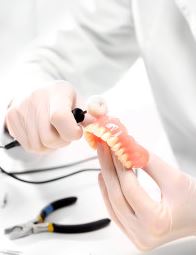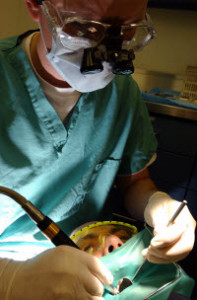 What could cause dentures to loosen?
What could cause dentures to loosen?
Over time, patients may experience some or a few of the following:
- Jaw shrinking or changing over time.
- Daily wear and tear.
- Too much pressure applied during cleaning.
- The initial “settling” period is over.
- Improper daily denture care regimen.
What To Do If Dentures Loosen
If these dentures are fairly new, it’s important to consider that they need a period of adjustment, in which case, some looseness is normal. However, make sure to keep all of your follow-up appointments with your dentist. For dentures that have loosened as a result of time or use, give us a call at: 516-565-3435 or 516-348-2000. To try a temporary fix, make sure to use the appropriate adhesive!
How To Handle Broken Dentures
Dentures are an important part of your oral health, so the moment you have a problem arise, make sure to treat it with as much urgency as you would with your natural teeth. Broken dentures are often the result of many things, but most commonly may include:
- Soaking in too hot water that causes melting or warping.
- An injury or an accident while the denture is being used.
- Improper maintenance or simply, general wear and tear through usage.
If your dentures are broken or misshapen, never opt to wear someone else’s or a pair that’s not properly fitted for you. Collect all of the pieces of your broken dentures, but never attempt repair on your own. The pieces you collect should be placed inside a container filled with water.
You can proactively prevent denture breakage by removing them nightly and following strict guidelines from your dentist. It’s also crucial to only use cold water when soaking them and storing them in a proper container when not in use. Lastly, always schedule regular checkups with your dentist to prevent future problems.
If you find that your dentures are broken or loose, schedule an emergency dental in Baltimore appointment right away!

